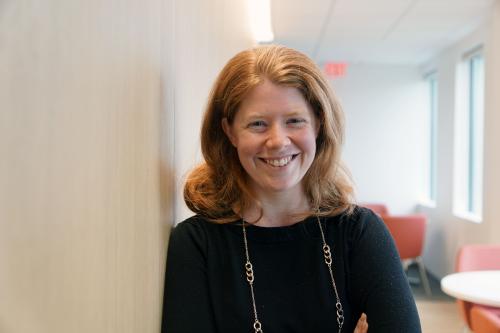Katharine Meyer discussed the Trump administration’s targeting of academic institutions’ DEI programs and policies with The Hill.
Research Areas
Additional Expertise
- Libraries, School Counseling, College Access, Behavioral Science
Katharine Meyer is a fellow in the Brown Center on Education Policy at Brookings. Meyer focuses on how individuals access knowledge needed to make informed decisions about their postsecondary education opportunities–and how to build successful, scalable strategies to ensure greater access to that information. Her current work explores how to support college retention and completion through virtual advising, the effect of school counselors on college access, and the design of state financial aid programs. Her work has previously been published in journals such as the Journal of Human Resources, Journal of Policy Analysis and Management, and Daedalus. Meyer holds a Ph.D. in educational policy, an M.P.P., and a B.A. in government from the University of Virginia.
-
Current Positions
- Fellow, Governance Studies, the Brookings Institution
-
Past Positions
- Postdoctoral Research Associate, Annenberg Institute, Brown University Affiliate, Taubman Center for American Politics and Policy
- Research Affiliate, Nudge4 Solutions Lab, University of Virginia
-
Education
- Ph.D. Education Policy, University of Virginia
- M.P.P. Public Policy, University of Virginia
- B.A. Government, University of Virginia
Media Coverage
Cutting Pell while simultaneously cutting FSEOG adds up to a dramatic loss in aid available to the lowest-income college students and the institutions that serve them…
If you looked on average at how professors at the Ivy League voted, there would be a majority [Democratic] … and so there’s this perception on the right that these colleges don’t have..."
Absent action by Congress, today or going forward, the writing of these bills does not—to me—say that there’s a legal way for an administration to just pick up one office and put it in..."
